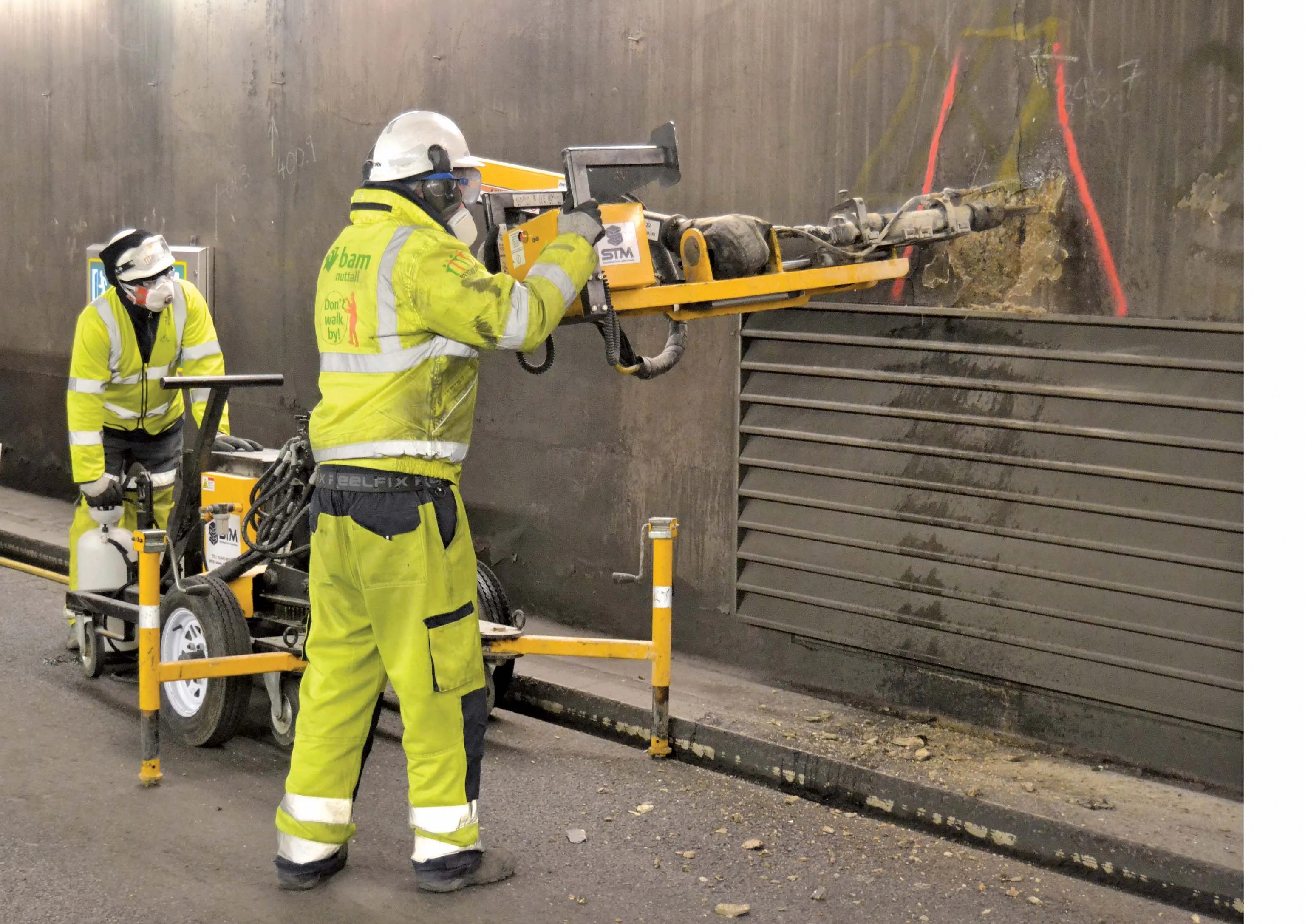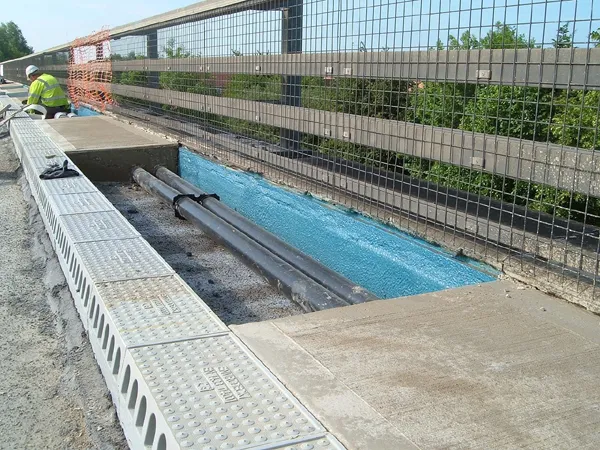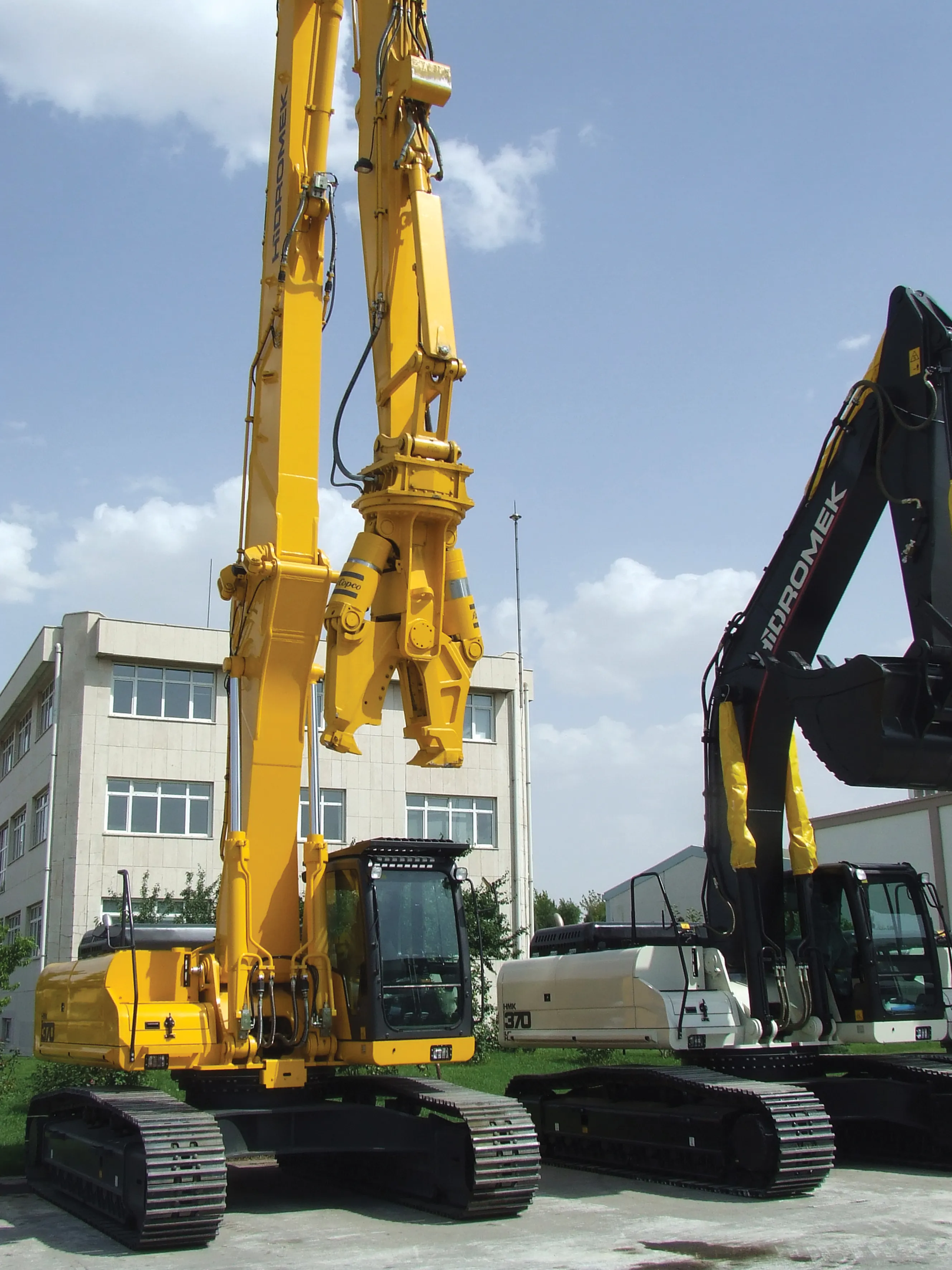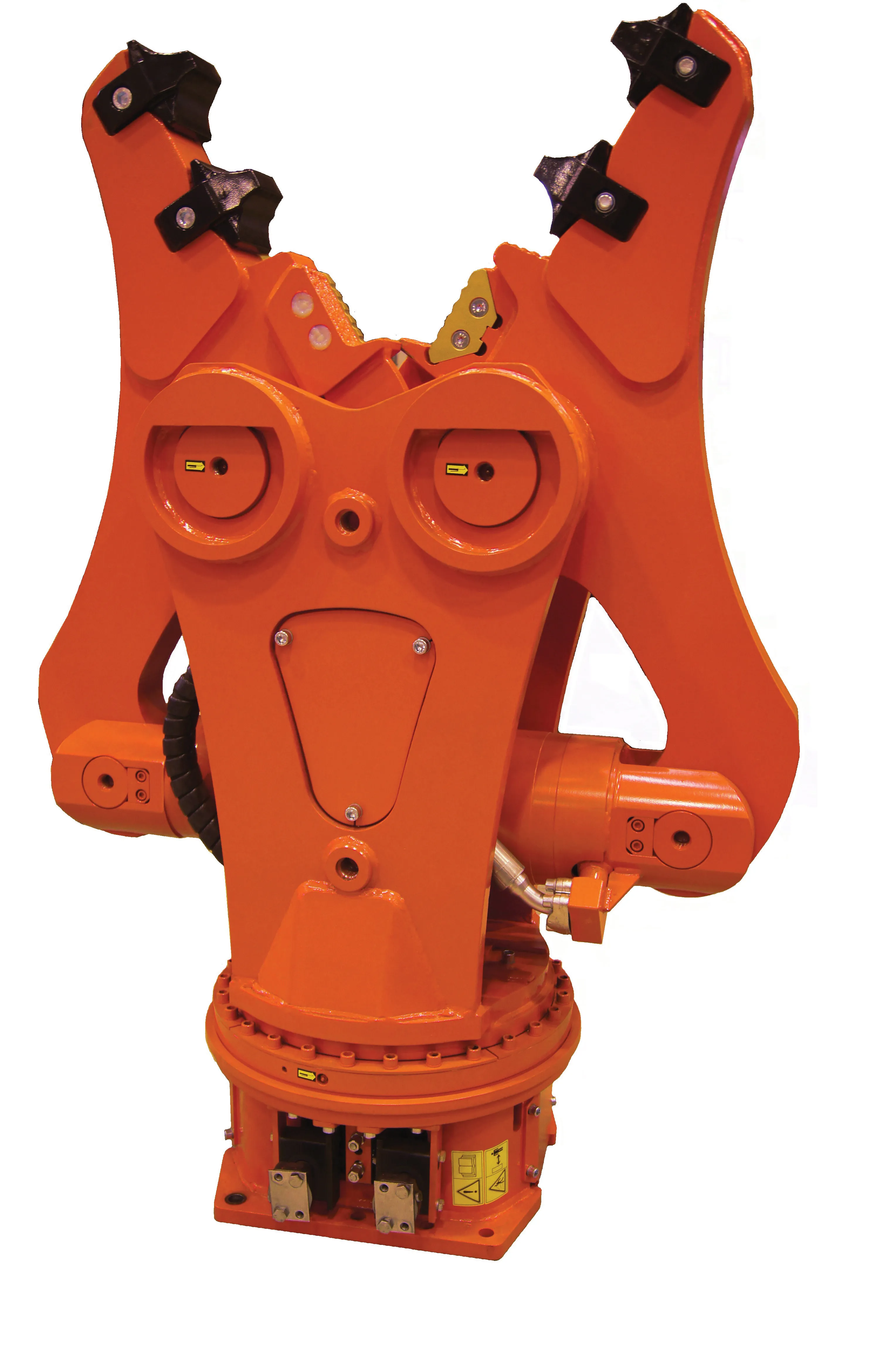A Positioner-Actuator-Manipulator (PAM)machine on hire from UK dealer STM of Tring has been able to cut concrete removal time for Bam Nuttall on its €116.2 million tunnel refurbishment contract at Heathrow Airport. The 18-month contract involves major work on the main and cargo tunnels serving Terminals 1, 2 and 3 in order to comply with the latest European standards and also to extend the life of the tunnels for a further 60 years.
As part of the project, some 206m2 of concrete repairs were needed to be
December 11, 2015
Read time: 2 mins

A Positioner-Actuator-Manipulator (PAM)machine on hire from UK dealer STM of Tring has been able to cut concrete removal time for 3137 Bam Nuttall on its €116.2 million tunnel refurbishment contract at Heathrow Airport. The 18-month contract involves major work on the main and cargo tunnels serving Terminals 1, 2 and 3 in order to comply with the latest European standards and also to extend the life of the tunnels for a further 60 years.
As part of the project, some 206m2 of concrete repairs were needed to be carried out. Bam Nuttall opted to use the Canadian built PAM unit, which allowed work to continue throughout the 10.30 pm to 5.30 am possession time. The breaker is firmly secured to an air-over-hydraulic powered two-piece arm, which isolates vibration from the PAM's controls. The unit is mounted on four castors or removable road wheels and can be pushed into position prior to applying the brake and deploying outrigger legs for stability during operation. Weighing only 525kg without a tool in place, the machine can be easily transported in a conventional van.
As part of the project, some 206m2 of concrete repairs were needed to be carried out. Bam Nuttall opted to use the Canadian built PAM unit, which allowed work to continue throughout the 10.30 pm to 5.30 am possession time. The breaker is firmly secured to an air-over-hydraulic powered two-piece arm, which isolates vibration from the PAM's controls. The unit is mounted on four castors or removable road wheels and can be pushed into position prior to applying the brake and deploying outrigger legs for stability during operation. Weighing only 525kg without a tool in place, the machine can be easily transported in a conventional van.








